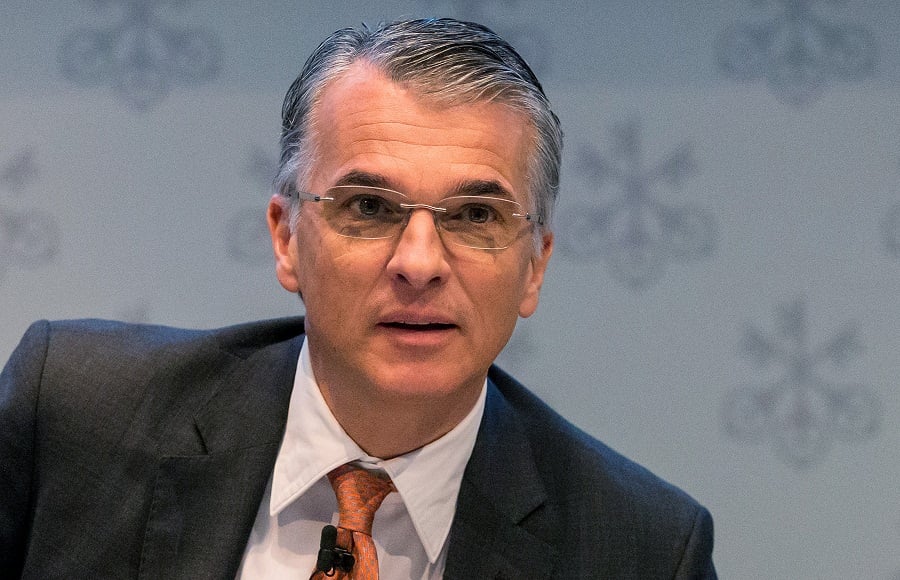

Swiss Finance Minister Karin Keller-Sutter said she was concerned about the level of compensation paid out to executives such as Sergio Ermotti, who was brought back to run UBS Group a year ago and oversee the rescue of Credit Suisse.
Ermotti, who has been leading one of the most complex bank integrations since the financial crisis, received total compensation of around $16 million for his first nine months on the job, making him the highest-paid European bank chief. While it’s up to shareholders to sign off on such amounts, they exceed “the imagination of any normal citizen,” Keller-Sutter said during a press conference.
“It does concern me,” she said, adding that she was expressing her personal views and referring to a broader trend at companies, not just UBS and its CEO. “In the last couple of years, this has led to an alienation between companies and the people.”
On Wednesday, the Swiss government unveiled a sweeping set of measures to reform bank oversight in response to the country’s most severe financial crisis in over a decade, addressing a weakness that helped accelerate Credit Suisse’s demise last year. The proposals effectively single out UBS as Switzerland’s sole globally systemic lender, while stopping short of giving the regulator the power to fine lenders.
UBS last month announced that it cut its overall bonus pool for 2023 by 14% despite a record annual profit driven by the acquisition of Credit Suisse. The bonus allocation was a reflection of the impact from challenging operating conditions and market volatility, the bank said.
As part of the proposals unveiled Wednesday, the government said it will consider potential clawbacks for bonuses. Shareholders of UBS are set to vote on executives’ compensation later this month.

While industry statistics pointing to a succession crisis can cause alarm, advisor-owners should be free to consider a middle path between staying solo and catching the surging wave of M&A.

New joint research by T. Rowe Price, MIT, and Stanford University finds more diverse asset allocations among older participants.

With its asset pipeline bursting past $13 billion, Farther is looking to build more momentum with three new managing directors.

A Department of Labor proposal to scrap a regulatory provision under ERISA could create uncertainty for fiduciaries, the trade association argues.

"We continue to feel confident about our ability to capture 90%," LPL CEO Rich Steinmeier told analysts during the firm's 2nd quarter earnings call.
Orion's Tom Wilson on delivering coordinated, high-touch service in a world where returns alone no longer set you apart.
Barely a decade old, registered index-linked annuities have quickly surged in popularity, thanks to their unique blend of protection and growth potential—an appealing option for investors looking to chart a steadier course through today's choppy market waters, says Myles Lambert, Brighthouse Financial.
